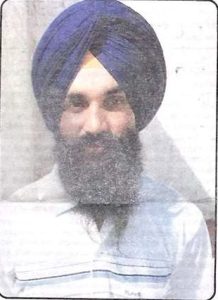

NEW DELHI: A division bench of the Indian Supreme court comprising judges K.L.Akemedi and T. Ramaswamy has confirmed the death sentence on Bhai Sukhdev Singh and Bhai Harjinder Singh.
The sentence was awarded by a Poona court Bhai Sukhdev Singh and Bhai Harjinder Singh had been sentenced 10 deaths for killing General. A.S. Vaidya, a former chief of the Indian army, who was responsible for the Indian attack on the Golden Temple, Amritsar, a holy place of Sikhs.
The two Sikh militant leaders had refused To file a mercy petition to the Maharashtra high court or to the Indian supreme court. Earlier, the Maharashtra high court had confirmed the death sentences for the Sikh leaders.
The Indian government is unlikely to carry out the sentence immediately because it wants to use the issue as a bargaining chip, according to political circles here.
According to Press Trust of in the court however saw no merit in the western Indian state of Maharashtra appeal against the acquittal of other accused persons of all the charges leveled against the mas well as these two who were accused on other counts. The court accordingly dismissed the criminal appeal.
The count said the line of reasoning taken by the designated court which had awarded sentence on the two accused, was that tie case was the “rarest of the rare” and that it deserved the death penalty was unassailable.
The judges pointed out the accused persons had no remorse or repentance after killing Gen Vaidya and in fact felt proud of having done s0 in execution of their plan for his alleged role in “operation Blue Star.”
The court said it was thus apparent that before the accused made their statements admitting their involvement they had mentally prepared themselves for the extreme penalty and therefore if they desired to place any material for a lesser sentence they had ample opportunity to do so.
The court said the decision of the high court in Kehar Singhs case was in regard to the well planned manner in which they executed their resolve to kill Gen Vaidya, They were aware that there was every likelihood of the court imposing the extreme penalty otherwise they could have placed material in their written statements, for requested the court for time when their statements under section 313 of the code were recorded.
The court said their resolve not to do so is reflected by the fact. they had not chosen to file any appeal against their convictions as given by the designated court.
Article extracted from this publication >> July 24, 1992